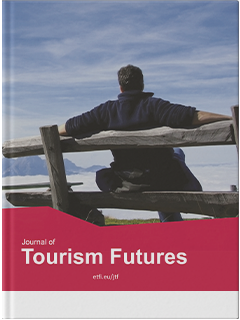人工智能的文化游客和用户体验:来自Industry 5.0方法的整体视角
IF 5.8
Q1 HOSPITALITY, LEISURE, SPORT & TOURISM
引用次数: 1
摘要
目的本文旨在从专家、文化游客和用户的角度,分析在行业5.0方法下,人工智能技术在文化机构(如博物馆、展览馆和文化中心)提供的服务体验中的应用前景。设计/方法论/方法研究采用了定性方法,该方法基于对与专家、文化游客和用户进行的两次圆桌讨论中获得的内容的分析。使用NVivo对获得的数据进行了专题分析。发现从未来的Industry 5.0方法来看,人工智能被认为不仅仅是一种工具,而是整个体验不可或缺的一部分。人工智能有助于将文化机构与用户联系起来,这是有益的,因为它可以让机构更好地了解用户,并提供更全面、更身临其境的体验。此外,人工智能在建立社区和每天培养社区方面至关重要。原创性/价值本研究最重要的贡献是从Industry 5.0的方法中建立了一个理论模型,重点关注博物馆和文化机构的用户体验和人工智能在服务体验中的应用。该模型通过以下维度包括访客和管理者的观点:前体验、体验和后体验。该模型专注于博物馆和文化机构中的人工智能协同工作(HAIC)。本文章由计算机程序翻译,如有差异,请以英文原文为准。
Cultural tourist and user experience with artificial intelligence: a holistic perspective from the Industry 5.0 approach
PurposeThe purpose of this paper is to analyse the future of the implementation of artificial intelligence (AI) technologies in services experience provided by cultural institutions (e.g. museums, exhibition halls and cultural centres) from experts’, cultural tourists’ and users’ point of view under the Industry 5.0 approach.Design/methodology/approachThe research was conducted using a qualitative approach, which was based on the analysis of the contents obtained from two roundtable discussions with experts and cultural tourists and users. A thematic analysis using NVivo was done to the data obtained.FindingsFrom a futuristic Industry 5.0 approach, AI is considered to be more than a tool – it as an integral part of the entire experience. AI aids in connecting cultural institutions with users and is beneficial since it allows the institutions to get to know the users better and provide a more integrated and immersive experience. Furthermore, AI is critical in establishing a community and nurturing it daily.Originality/valueThe most important contribution of this research is the theoretical model focused on the user experience and AI application in services experiences of museums and cultural institutions from an Industry 5.0 approach. This model includes the visitors’ and managers’ points of view through the following dimensions: the pre-experience, experience and post-experience. This model is focused on human–AI coworking (HAIC) in museums and cultural institutions.
求助全文
通过发布文献求助,成功后即可免费获取论文全文。
去求助
来源期刊

Journal of Tourism Futures
HOSPITALITY, LEISURE, SPORT & TOURISM-
CiteScore
15.70
自引率
6.00%
发文量
64
审稿时长
34 weeks
期刊介绍:
 求助内容:
求助内容: 应助结果提醒方式:
应助结果提醒方式:


